Resources
This online journal and website combines the strands of critical pedagogy and digital pedagogy to arrive at the best social and civil uses for technology and new media in education. It is a networked, participant-driven, and open peer reviewed journal that is both academic and collective.
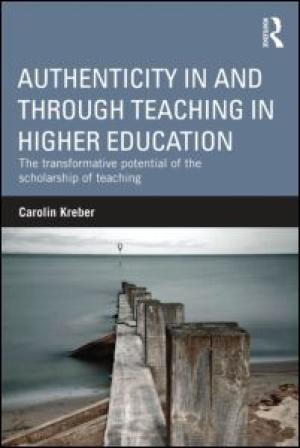
Click Here for Book Review Abstract: What does it mean to be authentic? Why should it matter whether or not we become more authentic? How might authenticity inform and enhance the social practice of the scholarship of university teaching and, by implication, the learning and development of students? Authenticity in and through Teaching introduces three distinct perspectives on authenticity, the existential, the critical and the communitarian, and shows what moving towards greater authenticity involves for teachers and students when viewed from each of these angles. In developing the notion of ‘the scholarship of teaching as an authentic practice', this book draws on several complementary ideas from social philosophy to explore the nature of this practice and the conditions under which it might qualify as 'authentic'. Other concepts guiding the analysis include ‘virtue’, 'being', ‘communicative action’, 'power', ‘critical reflection’ and ‘transformation’. Authenticity in and through Teaching also introduces a vision of the scholarship of teaching whose ultimate aim it is to serve the important interests of students. These important interests, it is argued, are the students’ own striving and development towards greater authenticity. Both teachers and students are thus implicated in a process of transformative learning, including objective and subjective reframing, redefinition and reconstruction, through critical reflection and critical self-reflection on assumptions. It is argued that, in important ways, this transformative process is intimately bound up with becoming more authentic. Rather than being concerned principally with rendering research evidence of ‘what works’, the scholarship of teaching emerges as a social practice that is equally concerned with the questions surrounding the value, desirability and emancipatory potential of what we do in teaching. The scholarship of teaching, therefore, also engages with the bigger questions of social justice and equality in and through higher education. The book combines Carolin Kreber's previous research on authenticity with earlier work on the scholarship of teaching, offering a provocative, fresh and timely perspective on the scholarship of university teaching and professional learning. (From the Publisher)
Abstract In several enigmatic passages, Paulo Freire describes the pedagogy of the oppressed as a ‘pedagogy of laughter’.The inclusion of laughter alongside problem-posing dialogue might strike some as ambiguous, considering that the global exploitation of the poor is no laughing matter. And yet, laughter seems to be an important aspect of the pedagogy of the oppressed. In this paper, I examine the role of laughter in Freire’s critical pedagogy through a series of questions: Are all forms of laughter equally emancipatory? Certainly a revolutionary pedagogue can laugh, but should he or she, and what are the political (if not revolutionary) implications of this laughter? In order to shed new light on Freire’s fleeting yet provocative comments, I turn to Jacques Rancière for his emphasis on the aesthetics of politics, and PauloVirno who connects joke telling with critical theory. Overall, I argue that we need to take Freire’s gesture toward a pedagogy of laughter seriously in order to understand the aesthetics of critical pedagogy and the fundamental need for a redistribution of the sensible that underlies educational relations between masters and pupils.
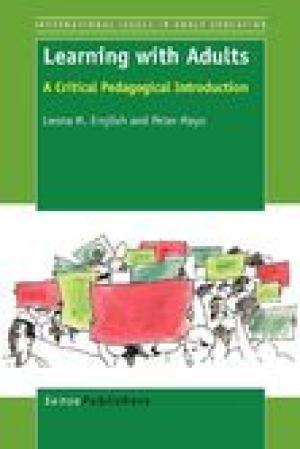
This book is written at a time when our own field of adult education is under assault from a variety of capitalist and neoconservative forces pressuring us... to turn away from the causes of criticality, lifelong learning, and education for freedom. Rather than succumb to these pressures, we have hope that our long term goals of education for life and living can and will be accomplished alongside professional and vocational education. This book offers new insight into what is a very dark moment of our human civilization. From the preface by Dr Carlos Alberto Torres, Professor, GSEIS, Director, Paulo Freire Institute, University of California at Los Angeles The book offers decidedly critical and international perspectives on various aspects of adult education, especially on state, citizenship and neoliberal policies. Critical in both content and method, it is at the same time the part of the collective work needed to advance the Belém call to action by furthering awareness and capacity in the field of adult education. Dr Katarina Popovic, Professor,Universität Duisburg-Essen, University of Belgrade & DBB International, In the midst of diminishing resources and growing inequalities, English and Mayo provide an incisive and much needed critique of adult education in ways that highlight not only its historical and philosophical roots but also its major significance to the practice of democracy. In a direct challenge to the neoliberal accountability craze, Learning with Adults offers a rigorous political reading of the field—one that systematically challenges oppressive educational policies and practices, while affirming an emancipatory vision of civic engagement. Truly an informative treatise that sheds new light on the education of adults. Dr Antonia Darder Professor & Leavey Presidential Endowed Chair in Education Loyola Marymount University Los Angeles Leona English and Peter Mayo challenge hegemonic assumptions and ideas, while offering a constructive alternative based on the principle of working with learners and not just for them. Their analysis is accessible enough for newcomers to the field, while the authors’ wide-ranging coverage and radical approach provide refreshing and challenging messages for the most experienced adult educator. Up-to-date, genuinely international and passionately committed, Learning with Adults is a great book. (From the Publisher)
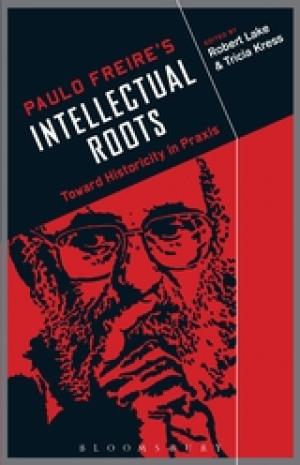
Click Here for Book Review Abstract: Paulo Freire's critical pedagogy has had a profound influence on contemporary progressive educators around the globe as they endeavor to rethink education for liberation and the creation of more humane global society. For Freire, maintaining a sense of historicity, that is, the origins from which our thinking and practice emerges, is essential to understanding and practicing education as a means for liberation. Too often, however, critical pedagogy is presented as a monolithic philosophy, and the historical and intellectual roots of critical pedagogy are submerged. Through a compilation of essays written by leading and emerging scholars of critical pedagogy, this text brings history into the present and keeps Paulo's intellectual roots alive in all of us as we develop our praxis today. (From the Publisher)
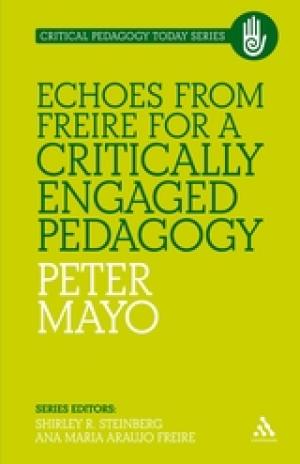
Click Here for Book Review Abstract: In this concise and accessible text, Peter Mayo outlines some of the major concepts in Freire's praxis. In pursuit of a critically engaging pedagogy, Mayo compares Freire's work with a range of other thinkers and educators, including Lorenzo Milani, Antonia Darder, John Dewey, Margaret Ledwith, Antonio Gramsci, and Henry Giroux. Chapters in the book include discussions of the State's role in education - specifically higher education; a critical analysis of the dominant discourse in education centering on 'competences' and the type of slant this discourse takes; a study of adult education through a Freirean lens; an historical view of Nicaragua's Freire-inspired literacy and popular education campaigns of 1980; a fresh perspective on the role of social movements in the contexts of social transformation; a new analysis of the relevance of Freirean concepts for transformative research, and an exploration of educators as intellectuals and social actors. The result is a compelling study of how Paulo Freire's writings continue to resonate around the world, and of how we must continue to apply and interpret them anew. (From the Publisher)
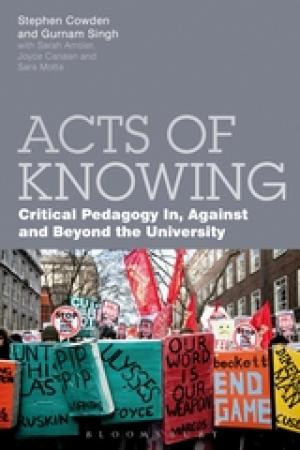
Click Here for Book Review Abstract: This provocative book's starting point is a deep and profound concern about the commodification of knowledge within the contemporary university. Acts of Knowing aims to provide readers with a means of understanding the issues from the perspective of Critical Pedagogy; an educational philosophy which believes that 'knowing' must be freed from the constraints of the financial and managerialist logics which dominate the contemporary university. Critical Pedagogy is important for three key reasons: it conceptualises pedagogy as a process of engagement between the teacher and taught; secondly that that engagement is based on an underlying humanistic view about human worth and value; and thirdly that the 'knowing' which can come out of this engagement needs to be understood essentially as exchange between people, rather than a financial exchange. Cowden and Singh argue that the conception of education as simply a means for securing economic returns for the individual and for the society's positioning in a global marketplace, represents a fundamentally impoverished conception of education, which impoverishes not just individuals, but society as a whole. (From the Publisher)
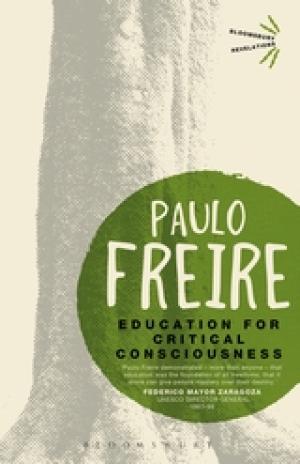
Famous for his advocacy of 'critical pedagogy', Paulo Freire was Latin America's foremost educationalist, a thinker and writer whose work and ideas continue to exert enormous influence in education throughout the world today. Education for Critical Consciousness is the main statement of Freire's revolutionary method of education. It takes the life situation of the learner as its starting point and the raising of consciousness and the overcoming of obstacles as its goals. For Freire, man's striving for his own humanity requires the changing of structures which dehumanize both the oppressor and the oppressed. Famous for his advocacy of 'critical pedagogy', Paulo Freire was Latin America's foremost educationalist, a thinker and writer whose work and ideas continue to exert enormous influence in education throughout the world today. Education for Critical Consciousness is the main statement of Freire's revolutionary method of education. It takes the life situation of the learner as its starting point and the raising of consciousness and the overcoming of obstacles as its goals. For Freire, man's striving for his own humanity requires the changing of structures which dehumanize both the oppressor and the oppressed. (From the Publisher)
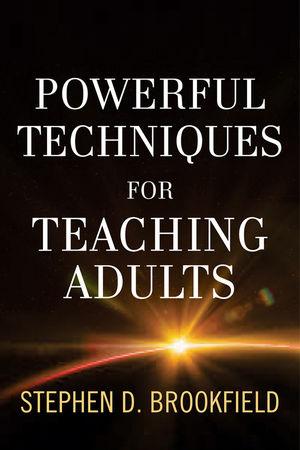
This book is designed as a practical resource that reviews some of the most helpful approaches and exercises that teachers use when working with adult learners. Written in an accessible style, with numerous examples of practical applications scattered throughout the text, the book does not assume any prior experience with adult learning theory or adult educational history and philosophy on the reader's part. The book invites the reader into a conversation about some of the major challenges and problems involved in teaching adults, a conversation which draws on the author's long history of working with adult learners to describe how to understand and respond to these same challenges and problems. (From the Publisher)
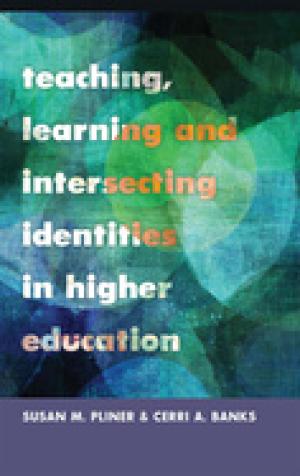
This book utilizes the theory of intersectionality to focus on the divergent identities and experiences of marginalized groups and to analyze the ways these experiences infiltrate the classroom. It examines teaching and learning as integrated and synergistic practices and highlights the personal and institutional power dynamics existing between scholars and students. Starting with the premise that institutions of higher education must pay attention to the ways intersecting identities and structures of privilege and disadvantage enter all educational settings, the contributors to this text represent a range of academic disciplines and they are both scholars and students. This approach demonstrates that ideas related to teaching and learning should not follow models that separate teachers, students, and disciplines, but rather that significant learning occurs in the areas where they overlap. Each chapter provides pedagogical strategies and methods for classroom practice that facilitate student learning, equitable classroom environments, and a social justice agenda. (From the Publisher)